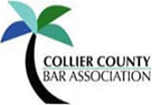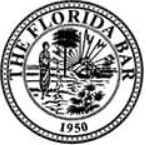Real Estate FAQs
How do I declare my property as Homestead for tax purposes?
To declare your property as Homestead for tax purposes, bring the following documents to the Property Appraiser’s office no later than March 1st of the year for which the exemption is to be effective.
- A recorded deed or tax bill in your name
- Florida driver’s license
- Florida auto tag registration
- If you are a registered voter in Collier County, a voter registration card
- Social Security numbers for applicant and spouse, if applicable
- A Declaration of Domicile filed with the Clerk of the Circuit Court, if there is one recorded
- Documentation from out of state assessor or property appraiser that any residency based exemptions on prior out of state property has been removed
- If the proposed Homestead property is held in a trust, a copy of the trust must be submitted for review and qualification
- An applicant who is not a U.S. Citizen must present a resident alien card (green card)
All documentation must be dated prior to January 1st of the tax year for which you are applying for the exemption.
Note: The Homestead exemption does not automatically transfer. A new application must be filed if you move within Collier County.
See the Collier County Property Appraiser’s website for more information: http://www.collierappraiser.com/Main_Homestead/MainHomestead.html?ccpaver=1.9.0
What are the benefits of declaring my property as Homestead?
There are several benefits to declaring your property as Homestead. The most well-known benefit is that Homestead property is entitled to a reduction of up to $50,000 from the assessed value of the dwelling and there is a 3% cap on assessed value increases. Each year following the effective date of the Homestead Exemption, the assessed value increase on Homestead Property cannot exceed 3% or the Consumer Price Index, whichever is less. Additionally, Homestead Property is protected from forced sale by creditors (except for several special circumstances—e.g. a voluntary encumbrance of the Homestead property, such as a mortgage as collateral for a promissory note). Finally, a surviving spouse and minor children’s Homestead interests are protected after the death of the Property owner.
Are You Up To Date On The 2017 Real Estate Contracts?
The Florida Realtors and Florida Bar (“FRBAR”) have rolled out significant revisions to their Real Estate Sales Contracts this year. Some of the changes are minor; others should give a Real Estate Sales Associate pause to reflect how these changes might affect their client’s rights and obligations in a transaction. A few of these FRBAR Contract revisions are addressed below.
FRBAR Residential Contract for Sale and Purchase (Rev. 4/17)
Financed Transactions – The financing contingency section in Paragraph 8 of the FRBAR Contract underwent a drastic overhaul. The term “Loan Commitment” has been replaced with “Loan Approval.” The default Loan Approval Date is now 30 days from the Effective Date of the Contract. If the Buyer – after diligent effort – is unable to obtain Loan Approval by the Loan Approval Date, then the Buyer may terminate the Contract by providing written notice to the Seller. If the Buyer does not provide written notice to the Seller that Buyer has either waived the Financing Contingency or received Loan Approval, then Buyer is deemed to have waived the Loan Approval. HOWEVER, within three days after the Loan Approval Date, the Seller may terminate the Contract and return the Deposit to the Buyer. A Seller may wish to terminate during the three-day window if they have received a cash offer, have a back-up offer, or if the Buyer’s Deposit is so small that the Seller does not want to keep the property off the market under the circumstances. If the parties do not terminate as permitted by the Contract, then the parties move forward to closing.
Seller’s Disclosures – Paragraph 10(b) requires the Seller to provide to the Buyer documentation of any known open permits or improvements which were not permitted. In 10(j), after the statement that the Seller knows of no facts materially affecting the value of the Real Property which are not readily observable and which have not been disclosed to Buyer, the Seller additionally affirms that the Seller has received no written or verbal notice from a government entity or agency as to a currently uncorrected building, environmental, or safety code violation.
Homeowner’s Association/Community Disclosure – On the horizon are revisions to the form Comprehensive Rider B. Homeowner’s Association/Community Disclosure. The new form will provide details about the mandatory fees and assessments, and if association approval is required, it makes the Contract contingent upon the parties receiving Association approval no later than 5 days prior to closing. Therefore, the Buyer would have the opportunity to terminate the Contract if the Buyer has not received Association approval within this time frame. The new form should be available later in 2017.
Feel free to contact our office at 239-649-5200 with any questions regarding the 2017 Real Estate Sales Contracts.







